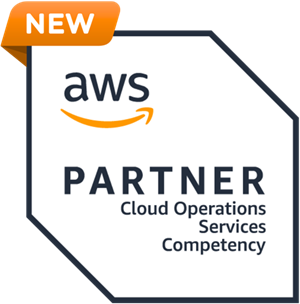Introduction
High growth tech teams running critical workloads on AWS must ensure they maintain stringent security controls, meet regulatory requirements, and retain complete visibility into user activity. Configuring audit trails and compliance monitoring in your AWS architecture is a foundational step to achieving this.
This article outlines clear, practical steps to set up audit trails and compliance monitoring in AWS while maintaining agility and operational efficiency.
What Are Audit Trails in AWS?
Audit trails are records of user activity and API calls within your AWS account. They provide a clear log of who did what and when, which is crucial for:
- Security investigations after incidents
- Compliance reporting for standards like ISO-27001, SOC2, and HIPAA
- Operational visibility into changes affecting your environment
Key AWS Services for Audit Trails and Compliance Monitoring
1. AWS CloudTrail
AWS CloudTrail is the core service for creating audit trails. It records API calls made via the AWS Console, CLI, SDKs, and other services.
Best Practice Configuration:
- Enable CloudTrail across all regions to capture global services events (e.g. IAM).
- Store logs in an S3 bucket with proper encryption (SSE-S3 or SSE-KMS).
- Enable log file integrity validation to detect any tampering.
- Integrate CloudTrail with Amazon CloudWatch Logs for real-time monitoring and alerting.
- Retain logs for at least 90 days or as per your compliance standards.
2. AWS Config
AWS Config records configurations of your AWS resources over time, enabling continuous compliance monitoring.
Recommended Setup:
- Enable AWS Config in all regions with recording of all resources.
- Create AWS Config Rules (managed or custom) to evaluate compliance. For example:
- Ensure EBS volumes are encrypted
- Ensure IAM users do not have inline policies
- Aggregate findings into a central account for organization-wide visibility.
- Integrate with AWS Security Hub to centralize compliance posture insights.
3. AWS CloudWatch
CloudWatch provides monitoring, logging, and alerting capabilities.
- Create metric filters for specific CloudTrail events (e.g. Unauthorized API calls).
- Set up alarms and notifications to your DevOps or security team when suspicious activities occur.
- Retain CloudWatch Logs per your compliance requirements.
4. AWS Security Hub
Security Hub aggregates security findings from services like GuardDuty, Inspector, Config, and third-party tools.
Implementation Tips:
- Enable Security Hub in all accounts and regions.
- Integrate with AWS Organizations to centralize findings.
- Review CIS AWS Foundations Benchmark compliance checks regularly.
Steps to Configure Audit Trails and Compliance Monitoring
Step 1: Enable CloudTrail Organization Trails
Using AWS Organizations, set up a single trail covering all accounts and regions for consolidated visibility.
Step 2: Secure Your Audit Logs
- Encrypt logs using KMS keys with least-privilege policies
- Enable S3 bucket versioning and object lock for immutability if required by compliance
Step 3: Set Up AWS Config and Rules
- Configure resource recording across all AWS resources
- Create rules aligned with your compliance frameworks (ISO-27001, SOC2)
- Set up SNS notifications for non-compliant resources
Step 4: Integrate CloudTrail and Config with CloudWatch
- Create metric filters for critical events
- Set up alarms to trigger immediate alerts to your Slack or incident management workflows
Step 5: Review and Remediate
Regularly review findings in Security Hub and AWS Config. Assign remediation tasks to your DevOps team or integrate automated remediation using AWS Systems Manager or Lambda functions.
IAMOPS Approach: Ensuring Compliance with Confidence
At IAMOPS, we empower high-growth tech companies with:
- Audit trail and compliance monitoring implementation aligned with ISO-27001 and SOC2 standards
- Continuous compliance reviews embedded into CI/CD and IaC workflows
- Proactive security workplans through IAMOPS DevSecOps, ensuring that audit trails and compliance controls are always enforced
- 24/7 support to resolve incidents and maintain security without affecting product releases
Final Thoughts
Audit trails and compliance monitoring are not just regulatory requirements. They are critical to maintaining trust, security, and operational resilience in your AWS environment.
By implementing the practices outlined above, your team will gain enhanced visibility, improved security posture, and readiness for future growth and audits.


